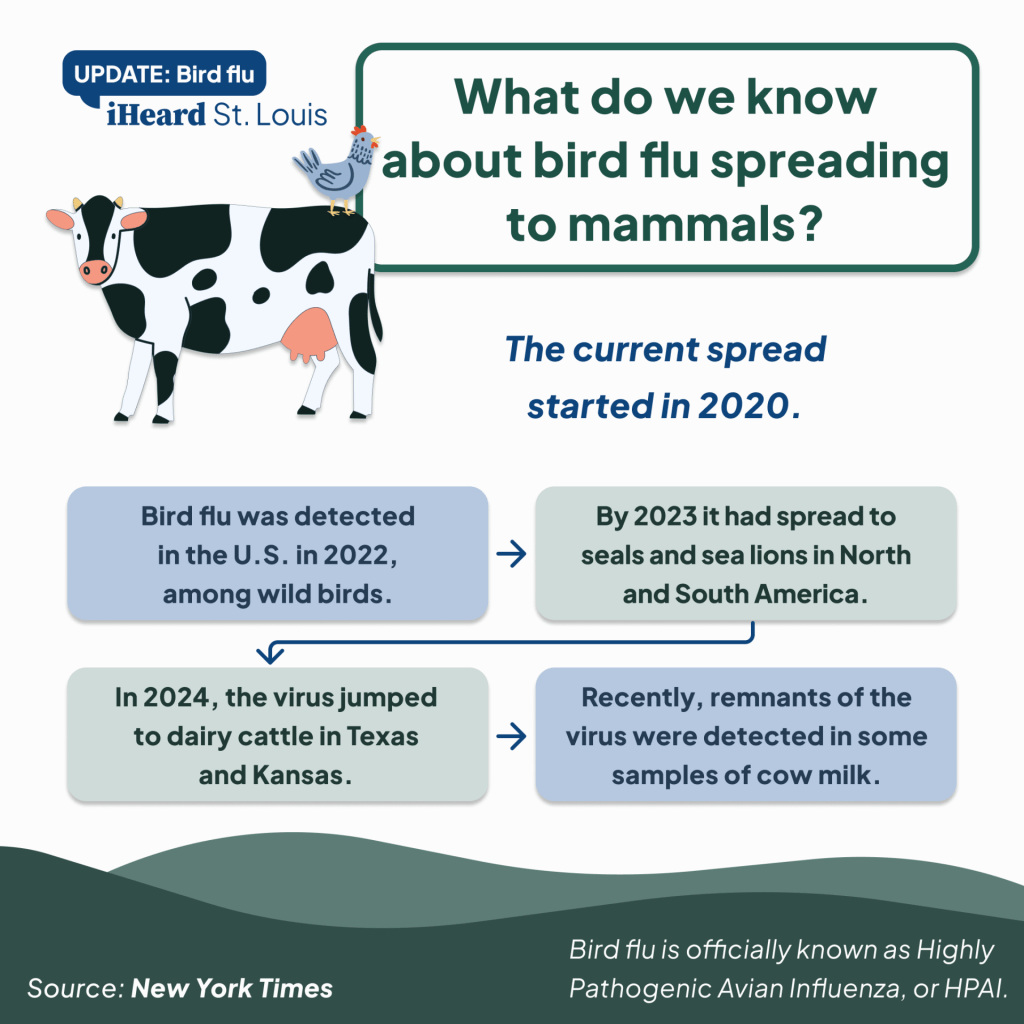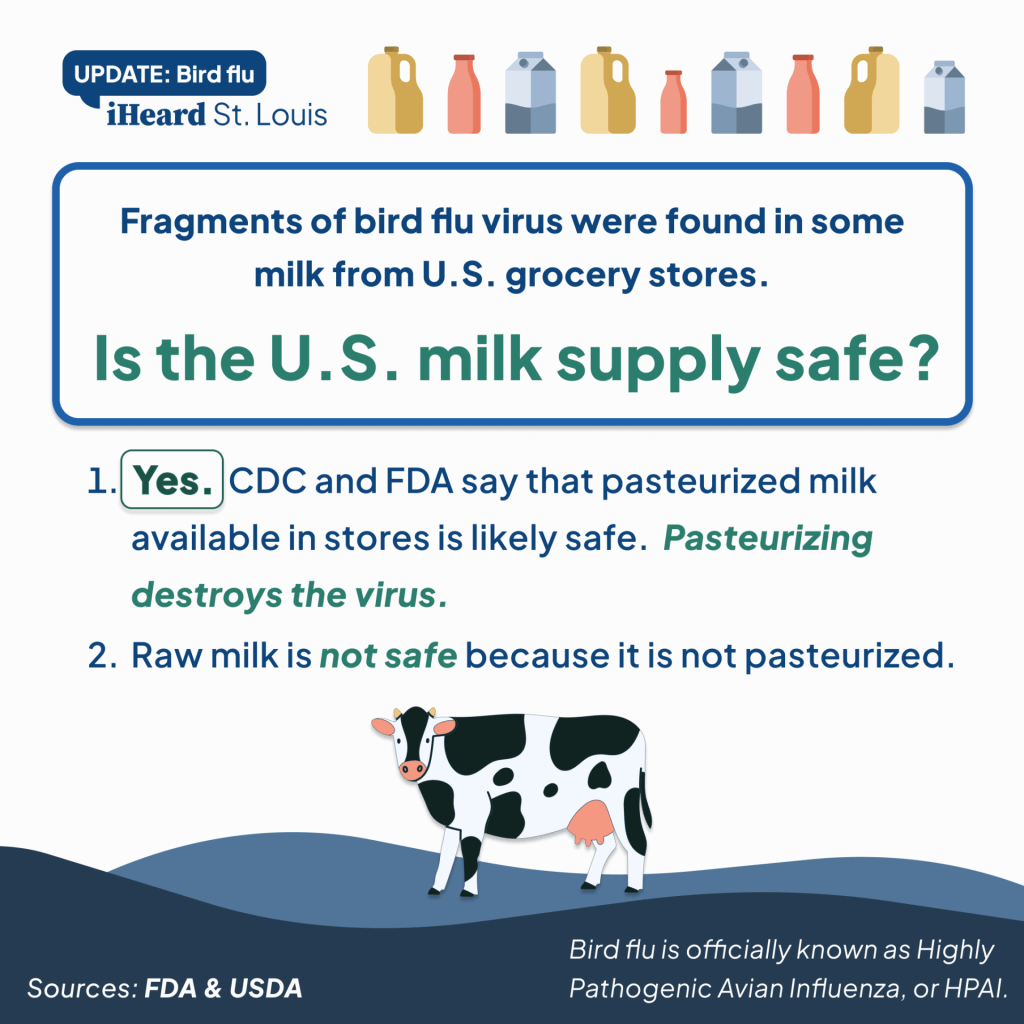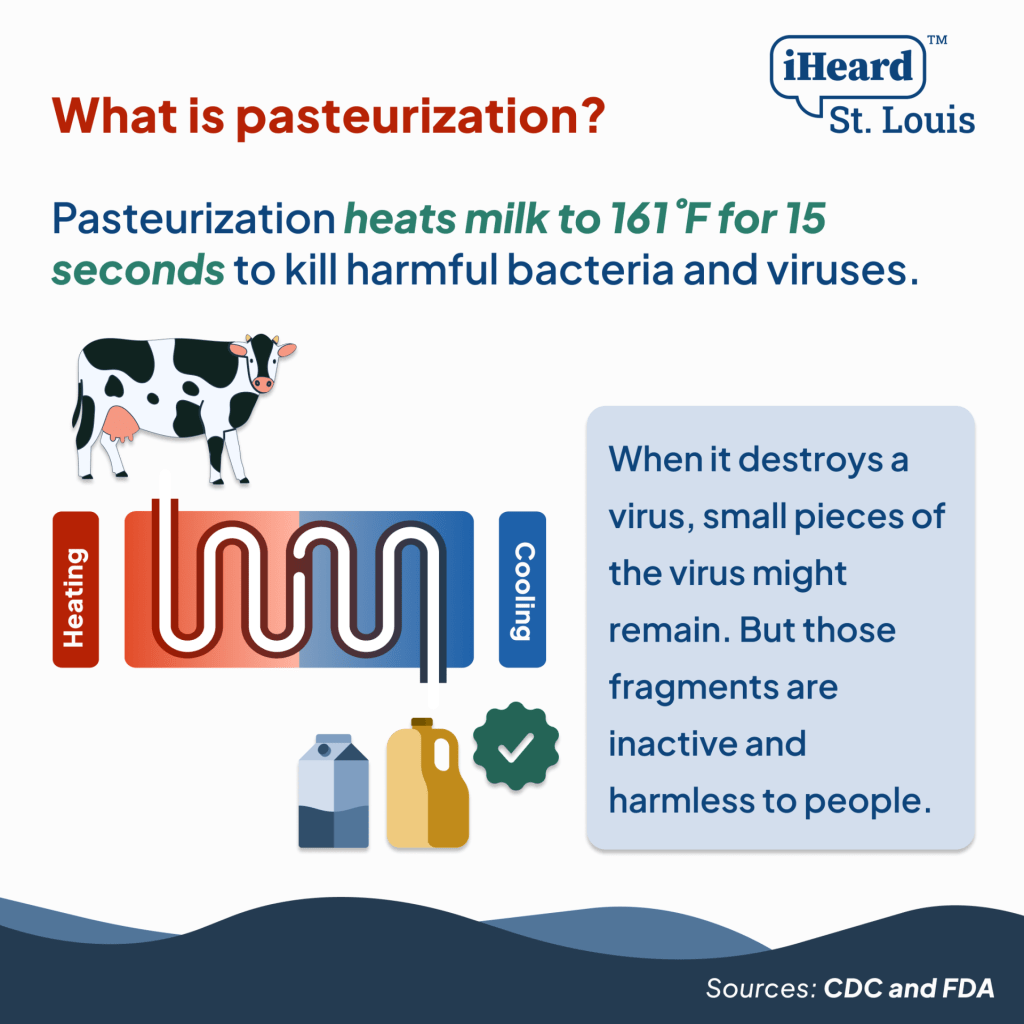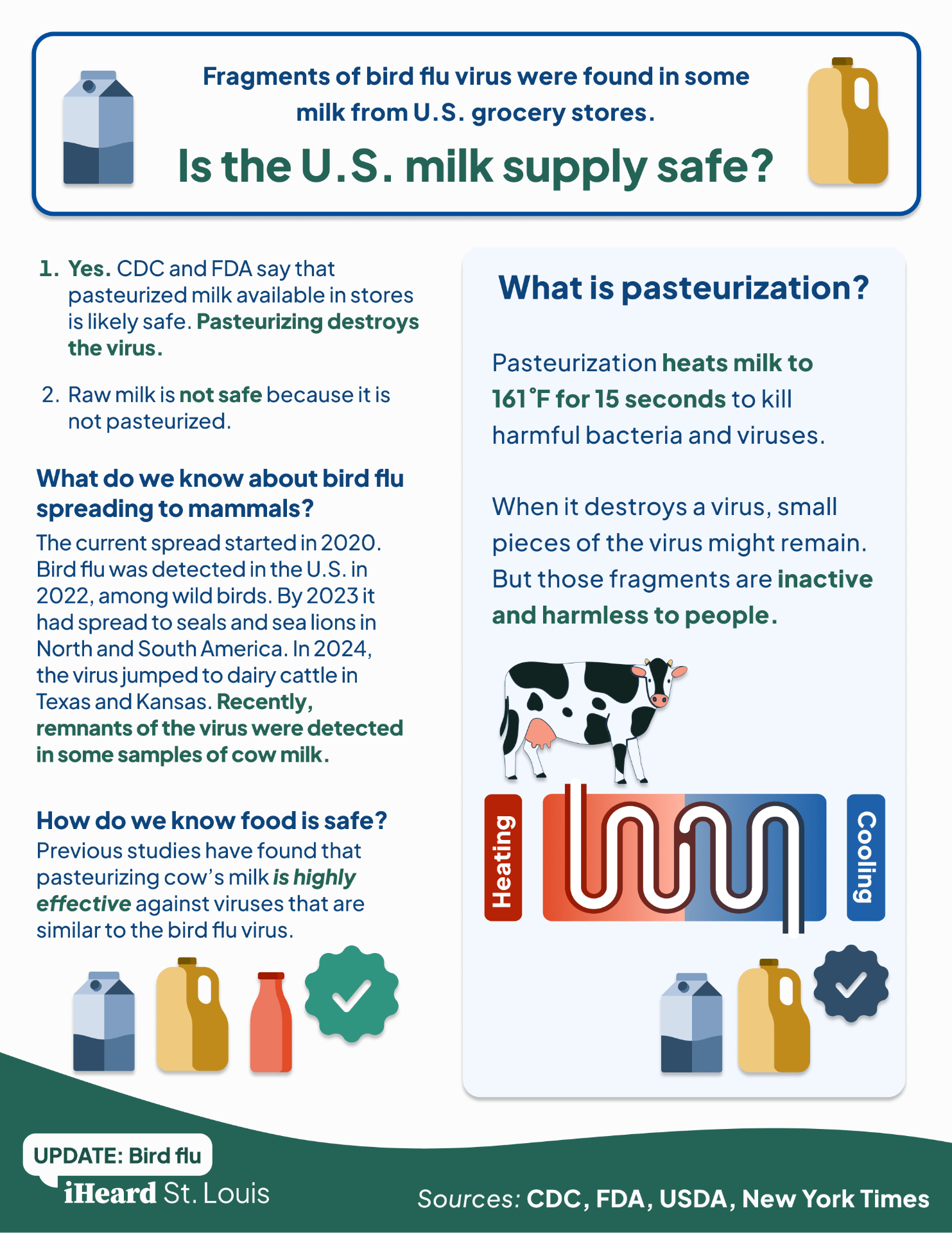What happened?
On April 23, the FDA and multiple news organizations reported that particles of the H5N1 bird flu virus have been detected in some cow’s milk samples taken from U.S. grocery stores.
Is the U.S. milk supply safe?
FDA and CDC say yes, based on what is known today. When the milk samples were tested, only trace amounts of the virus were found, and only in some samples. Store-bought milk is considered safe because it is pasteurized, a heating process that destroys disease-causing agents. Pasteurizing inactivates a virus so it cannot infect people, but may leave behind some small, inactive particles of the virus. These particles likely pose no health threat.
How sure are we?
The testing tools used so far can tell if genetic material from the bird flu virus is present in milk. Different testing is needed to tell if the virus is intact and infectious, and that testing is now underway. However, previous studies have found that pasteurization of cow milk is highly effective against viruses like the bird flu virus, and effective against the bird flu virus in eggs.
How did we get here?
The current strain of H5N1 bird flu has been spreading rapidly around the world since 2020. In 2022 it was first detected in the U.S. among wild birds. By 2023 it spread to seals and sea lions in North and South America. In early 2024, the virus jumped to dairy cattle in Texas and Kansas. One month later, remnants of the virus were detected in some samples of cow milk.
What happens next?
This week’s FDA report shows that systems put in place to test and assure the safety of the U.S. milk supply are working. Now that bird flu virus parts have been detected in milk, the investigation will intensify with more research and testing. iHeard will share what is learned.
Do St. Louisans know about it?
Over one-third (37%) of adults surveyed in five states last weekend said they had heard about bird flu in the last 7 days, an increase of 25% over the prior week. In St. Louis, 27% of adults reported hearing about bird flu in the last week, a 46% increase over the prior week.
This week’s report is based on responses from a panel of adult residents of Baltimore, MD (n=172), St. Louis, MO (n=151), Omaha, NE (n=89), and Colorado (n=104) surveyed from Saturday, April 20 to Monday, April 22, 2024. Explore these data and more at iHeardSTL.
Download the graphics below to share about this topic.


Suggested Caption:
The FDA and multiple news groups reported that particles of the bird flu virus were found in some cow’s milk samples taken from U.S. grocery stores. FDA and CDC say that based on what we know today, pasteurized milk is safe because the heat-treatment process inactivates viruses.
#iHeardSTL #BirdFlu #Dairy


Suggested Caption:
Systems put in place to test and assure the safety of the U.S. milk supply are working. Now that bird flu virus parts have been detected in milk, the investigation will intensify with more research and testing. iHeard will share what is learned.
#iHeardSTL #BirdFlu #Dairy #Pasteurization
